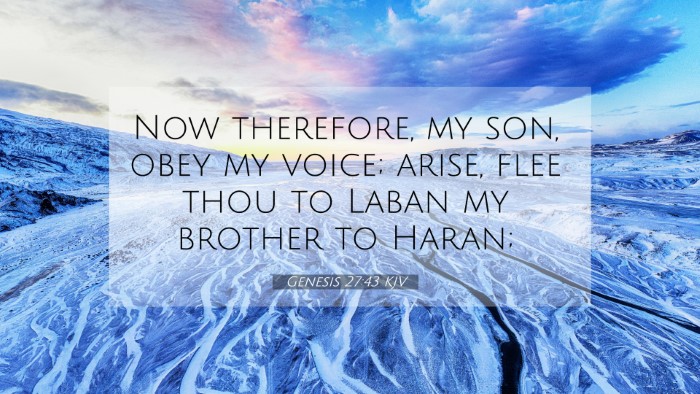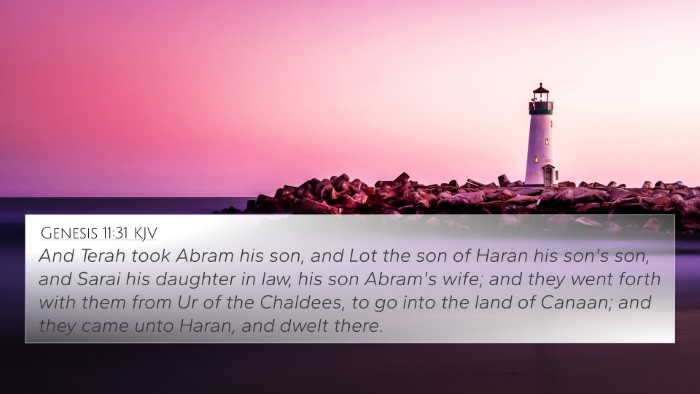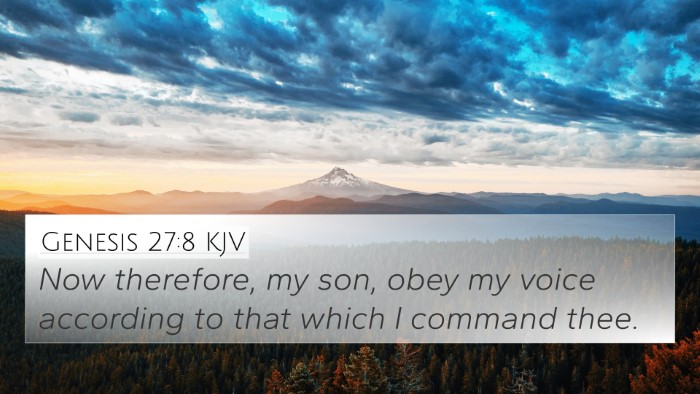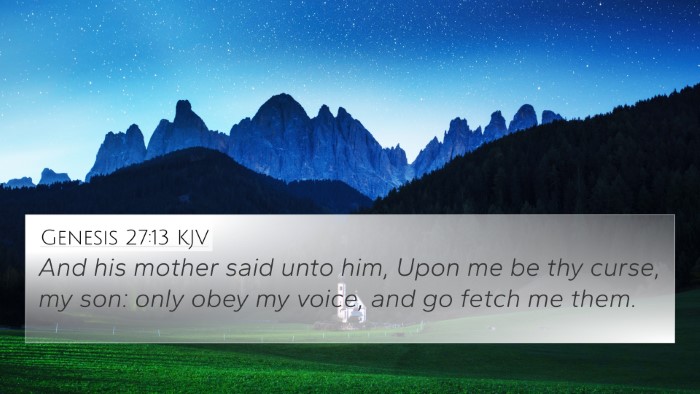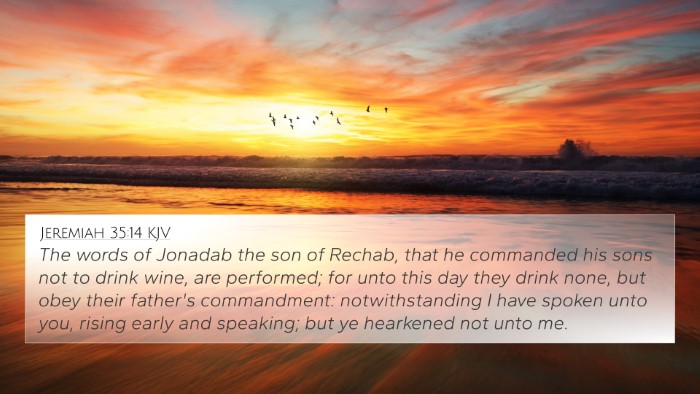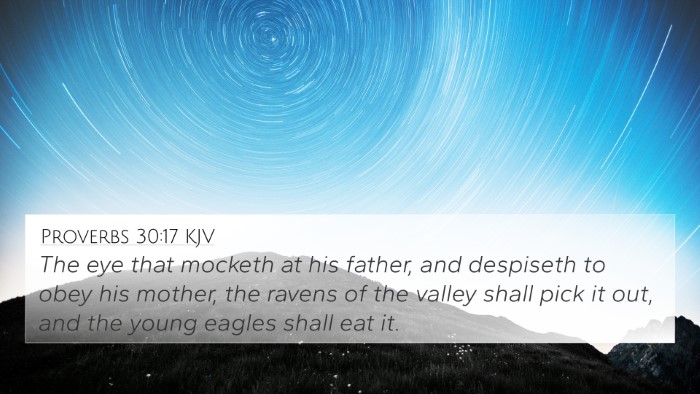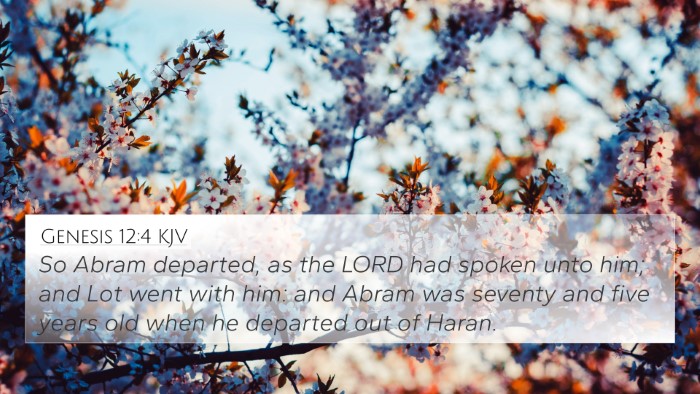Understanding Genesis 27:43
Genesis 27:43 states, "Now therefore, my son, obey my voice; arise, flee thou to Laban my brother to Haran." This verse captures a pivotal moment in the life of Jacob, as he is urged by his mother Rebekah to escape the wrath of his brother Esau after deceiving their father Isaac.
Contextual Significance
This verse follows a narrative where Jacob, under the guidance of his mother, took advantage of his father's blindness to obtain a blessing meant for Esau. The gravity of Jacob’s actions necessitates immediate action for his safety, illustrating the complexities of family dynamics.
Commentary Insights
-
Matthew Henry:
Henry discusses that Rebekah, driven by her love for Jacob, acts swiftly out of fear for his life. The command to "flee" signifies the dire consequences that Jacob faced due to his actions. The early part of this chapter outlines the frailty of human plans contrasted with divine purpose.
-
Albert Barnes:
Barnes points out that Rebekah's instructions were filled with urgency and parental concern. Her directive was not just about immediate safety but served the larger divine narrative regarding Jacob's destiny. The travel to Haran symbolizes a journey away from the familiar, embracing a path predetermined by God.
-
Adam Clarke:
Clarke provides an analysis of the cultural context, where the roles of birthright and blessings are critical. His commentary invites readers to explore how Jacob's flight is indicative of his future struggles and successes, setting the stage for his character development throughout the biblical narrative.
Thematic Connections
Genesis 27:43 establishes profound themes within the Biblical story:
- Deception: Jacob's deceit of Isaac, which prompts the need for flight, reflects a recurring theme of flaws in human characters.
- Family Dynamics: The complexities of favor and conflict between siblings are vividly portrayed.
- Divine Providence: Despite the flaws, God's will continues through imperfect actions, suggesting a larger plan at work.
Cross-References and Connections
This verse connects with several other scriptures that help illuminate its meaning:
- Genesis 25:23 - God's prophecy regarding Jacob and Esau.
- Genesis 27:36 - Esau's reaction and further conflict.
- Genesis 29:1 - Jacob's journey towards Haran.
- Genesis 31:3 - God's instruction to Jacob to return to his homeland.
- Hebrews 12:16-17 - A warning against Esau's godlessness.
- Ephesians 6:1-3 - The importance of honoring one's parents.
Comparative and Thematic Analysis
The analysis of Genesis 27:43 should consider the interconnectedness of various biblical themes:
- Exploration of deception can be linked with Genesis 3 - the deception in the Garden.
- Parental influence and its outcomes resonate with Proverbs 22:6 - the instruction of a child.
- Flight and protection reflect the narrative of Exodus 12:31 where God's people fled Egypt.
Conclusion
Genesis 27:43 serves as a profound reminder of the implications of human actions, the complexities of familial relationships, and God's overarching sovereignty orchestrating the affairs of His people. Understanding this verse in its broader context and through cross-referencing with related scriptures enhances interpretation and provides deeper insights into the themes of deception, providence, and divine purpose.
Tools for Bible Cross-Referencing
To further explore the connections in biblical texts, consider utilizing tools such as a Bible concordance or a cross-reference Bible study guide, which facilitate the identification of relationships between verses and enhance your understanding of scriptural narratives.


